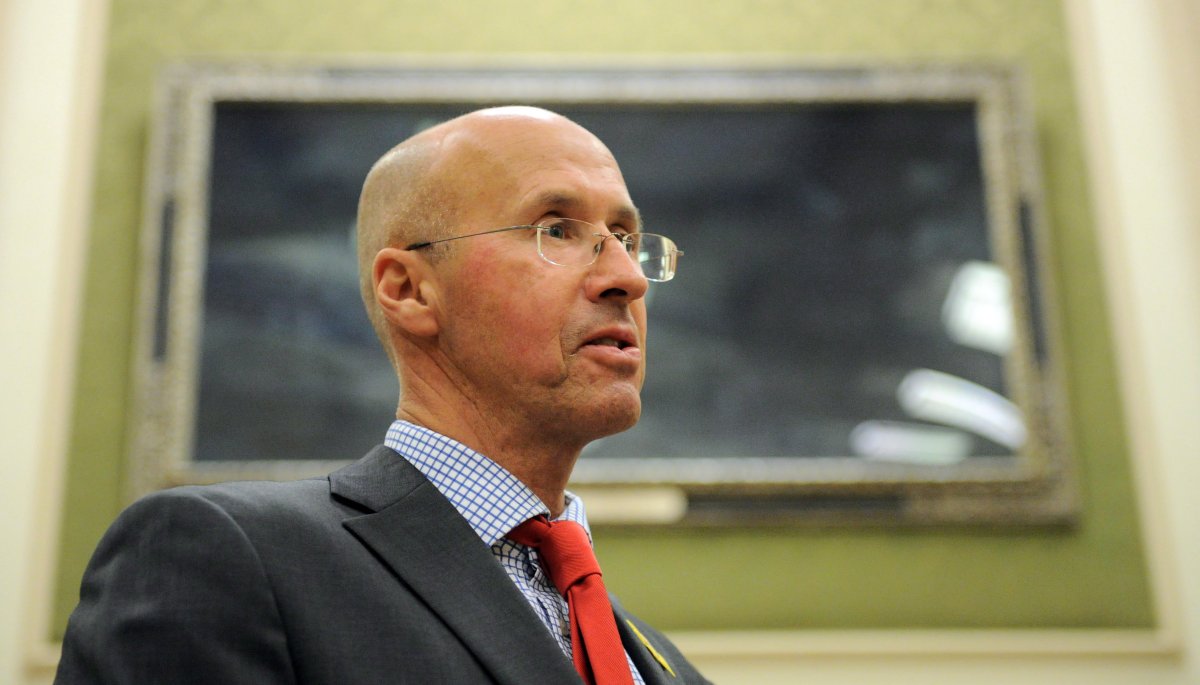OTTAWA – Kevin Page made a name for himself by holding politicians to account, but now he’s calling out fellow public servants, urging them to stand up for transparency, scrutiny and good research.

The former Parliamentary Budget Officer slammed the country’s top bureaucrats for weak leadership that has allowed paralyzing fear to spread throughout the public service and may leave Canada with irreversible scars.
With nearly three decades of public service under his belt, Page said he has never seen people so afraid – a fear that stops them from doing research that may contradict the current government’s ideology.
“We have all these big issues. We have climate change issues, aging issues, income disparity issues,” he said at a panel discussion on Thursday. “Where is the research on medium- and long-term issues? Where is the public service being non-partisan, looking for and putting this stuff out and creating debate?”
Instead, Page said public servants have been cowed into silence, which may fuel a loss of faith in government among Canadians.
“People stop trusting the institution,” he said. “When trust goes, I think the institutions become disconnected from the people. People stop caring and voting goes down.”
Page placed the blame at the highest ranks of the public service, which he says are supposed to protect such work.
- Posters promoting ‘Steal From Loblaws Day’ are circulating. How did we get here?
- Video shows Ontario police sharing Trudeau’s location with protester, investigation launched
- Canadian food banks are on the brink: ‘This is not a sustainable situation’
- Solar eclipse eye damage: More than 160 cases reported in Ontario, Quebec
He called Wayne Wouters, who as clerk of the Privy Council is Canada’s top public servant and is tasked with providing non-partisan support for the prime minister and cabinet, “missing in action.”
“When they see these institutions being totally undermined, if they are not prepared to push back then they are bystanders, and if you are a bystander you are a reinforcer. And I think they are reinforcing the culture taking place right now. To me, that’s wrong.”
Wouters was travelling and not available for an interview on Thursday.
Page contrasted Wouters with former chief statistician Munir Sheikh, who left when the Conservatives slashed the long-form census and is among the role models Page hopes existing bureaucrats will emulate. So are Finance czars David Dodge and Scott Clark, both of whom headed up the department.
Under their leadership, Page said, there would be “no way” a finance minister would go before committee and not provide the specific figure for a policy – as Finance Minister Jim Flaherty did last May when he refused to tell MPs how much money changes to Old Age Security would save.
Page himself was considering quitting after facing continued opposition in his fight to bring fiscal transparency to government.
In 2009, just a year into his job as Canada’s first budget officer, he was ready to throw in the towel. The office was delivering what Page thought the Conservatives wanted when they created the office in 2008 – a desire that seemed to change when they became government.
The Liberals were no more welcoming: “The Liberals were not our friends early on. They had dreams of being back in power, why would we want the PBO.”
The natural reaction, says Page, was disappointment.
“I’m quitting. I’m done,” he recalls telling his wife Julie. “Even though Canadians seem to appreciate it, they seem so far away.”
But Julie and budget office staff convinced him to stick it out. Phone calls from then NDP MP Tom Mulcair and the party’s late leader Jack Layton helped.
In the years that followed, Page continued to ruffle his share of feathers.
An analysis of the government’s F-35 fighter jets put cost estimates at $29.3 billion, compared to the $9 billion publicly stated by National Defence. A later report on Old Age Security contradicted the government’s position that the program was unsustainable.
Every time he released a critical report, the government would respond in turn: Finance Minister Jim Flaherty once called him “unreliable, unbelievable and incredible.”
Page again raised the ire of government following the 2012 budget by seeking details of its $5.1 billion-a-year in cuts, asking deputy ministers to provide details of what each department was cutting.
Many refused, prompting Page to ask the federal court to review his mandate. Last week, the court dismissed the request on a technicality, but suggested the government cannot deny the PBO information.
“The court was effectively saying we’ll be there for you,” Page said, claiming victory. “That’s all we really wanted.”
As Page was speaking on Thursday, his former office was preparing to send yet another round of letters to deputy ministers asking them to finally release the numbers.
In responding to the decision during question period, Prime Minister Stephen Harper called Page’s actions “partisan.”
Transparency is the best counter to such accusations, Page says, adding that all the PBO’s work is publicly available, unlike many government analyses.
“Accusations of partisan behaviour are cheap and dangerous for an institution responsible for independent analysis,” he wrote in an email to Global News. “How often has the government made political accusations (without showing its work) against the work of the PBO only see the government come to the same conclusion later on structural budget deficits, on fiscal sustainability, on F-35s etc?”
Page’s term ended April 1. He’s pessimistic about the office’s short-term future of the office, but believes it is on a firm foundation.
“You want to build something for the long term knowing that you are going to go through a difficult time in the short term,” he said. “I still believe today that we had to play it this way, so that it can come back, maybe under a different government.
“Good ideas are hard to kill.”


Comments